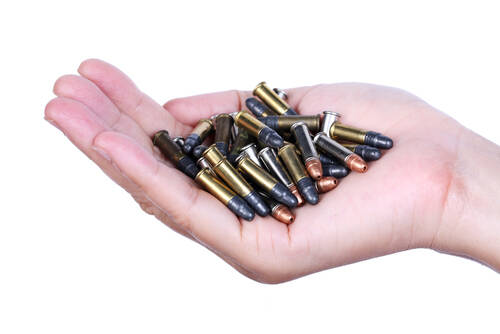There was a mournful tone in President Obama’s eulogy on Sept. 22 for the 12 victims of the Navy Yard shooting in Washington, D.C., as he lamented America’s “creeping resignation” to gun violence. “Our hearts are broken again,” he said. “The question is, do we care enough?”
Have we become so numb to gun violence that a deadly attack in our nation’s capital fails to shock? We still perform what has become an American ritual: a speech of consolation, a day of mourning, outraged calls for stricter gun control and an assurance—like President Obama’s on Dec. 14 after the slaughter at Sandy Hook Elementary School—that we will “come together and take meaningful action to prevent more tragedies like this.” But in the wake of the Navy Yard killings, it seems we could barely go through the motions. Whether compassion fatigue has left us inured to the sufferings of victims, or we are resigned to a political stalemate over any new gun regulations, we are allowing mass violence to become “the new normal.”
A recent study by Michael Siegel of Boston University, covering all 50 states from 1981 to 2010, demonstrates that the more guns there are in any one place, the more homicides and suicides there will be. The study, the largest ever of its kind, which appeared in the American Journal of Public Health, reports that for each 1 percent increase in household gun ownership, the firearm homicide rate increased by 0.9 percent. Another study, published last month by the Urban Institute, revealed that in 2010 alone there were 36,341 emergency room visits and 25,024 hospitalizations due to firearm injuries. Most of the visits involved low-income young men. One recent shooting spree in Chicago (Sept. 20-22) left four dead and 15 wounded.
While the litany of shootings—at Columbine, Virginia Tech, Fort Hood, Aurora, Tucson, Newtown—has dominated the headlines and television news, other forces have blocked action. These include the National Rifle Association, gun manufacturers and gun marketers like Walmart, the biggest seller of firearms and ammunition in the United States. Add to that the television programs and Hollywood films in which all disputes are settled with shoot-outs, splattering walls and street corners with blood; and finally there are the politicians who pocket campaign contributions from gun makers in return for maintaining the status quo.
What can we do? Perhaps someday the Supreme Court will allow broader restrictions on gun ownership and use, but for now the court is stymied by the anachronistic worldview of the Second Amendment. For that reason America proposed repealing the Second Amendment (Editorial, 2/25) in order to allow Congress and state legislatures full discretion to pass appropriate measures to reduce gun violence. Aggressive owner registration for all weapons, regardless of point of sale, is needed as a basic, commonsense way to prevent guns from falling into the wrong hands, whether of the mentally ill, young people or criminals. Comprehensive safety training and minimum storage requirements should also be required for anyone seeking the responsibility of gun ownership.
Fred Hiatt, in a column in The Washington Post (9/22), suggests that gun reform has been stymied because its opponents are “focused, passionate, unyielding and indefatigable,” while the reformers cannot agree on a common message. Other social movements have succeeded because they focused on a clear, immediate goal. Mr. Hiatt, citing anti-smoking campaigns and vehicular safety regulations, makes the case that “public health” is an argument that appeals to many Americans and could be effective in the campaign against gun violence.
As pro-life people of faith, we believe that gun control is a pro-life issue and that the pro-life movement should be passionate, unyielding and indefatigable in our efforts to end this scourge. As Pope Francis reminds us, reform takes time as it moves from discernment to laying the foundations for action. Perhaps a coalition with a steering committee of bishops, ecumenical partners, leaders of religious orders and lay persons could lead the faith-based effort. It should form soon. President Obama said in Washington that tears and prayers are not enough: “We’re going to have to change.” He ended with a quote from Aeschylus: “In our sleep, pain which cannot forget falls drop by drop upon the heart until, in our own despair, against our will, comes wisdom through the awful grace of God.” In short, God will give us the strength to do this. Robert F. Kennedy quoted the same passage just hours after the assassination of Martin Luther King Jr. Two months later Mr. Kennedy, like his brother, fell from a bullet fired by someone who should not have had a gun. The question we face is, do we still care?








